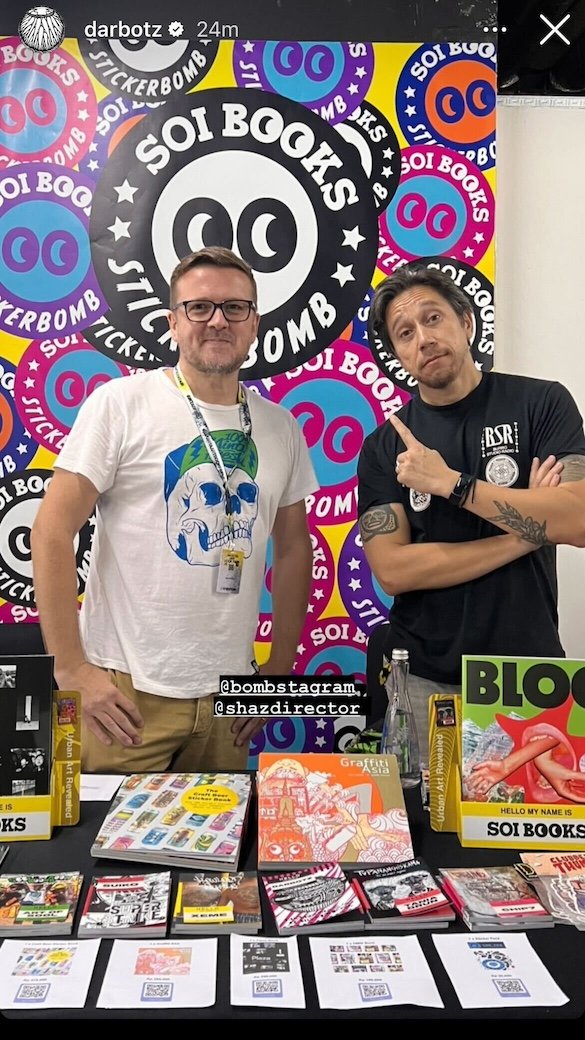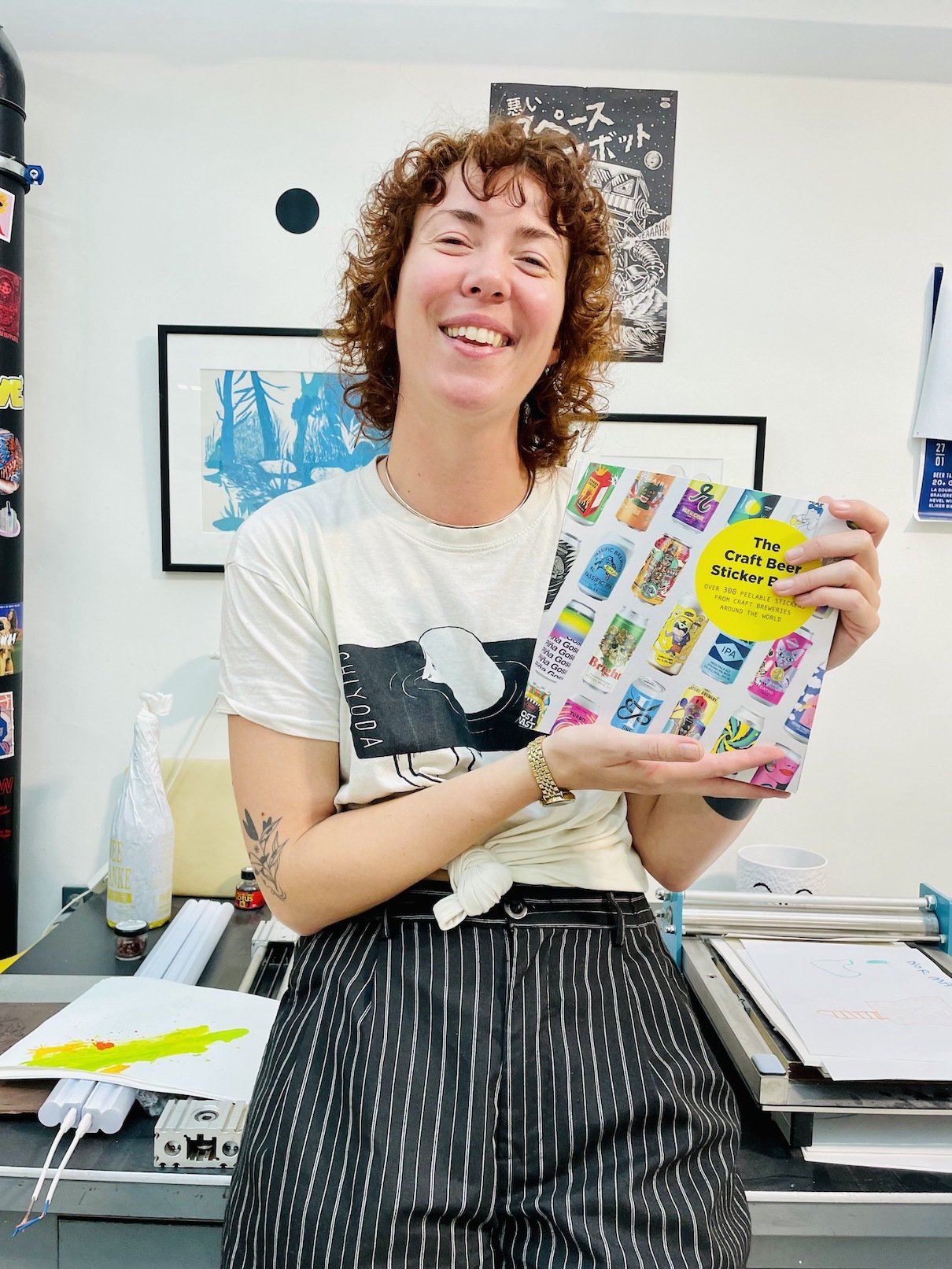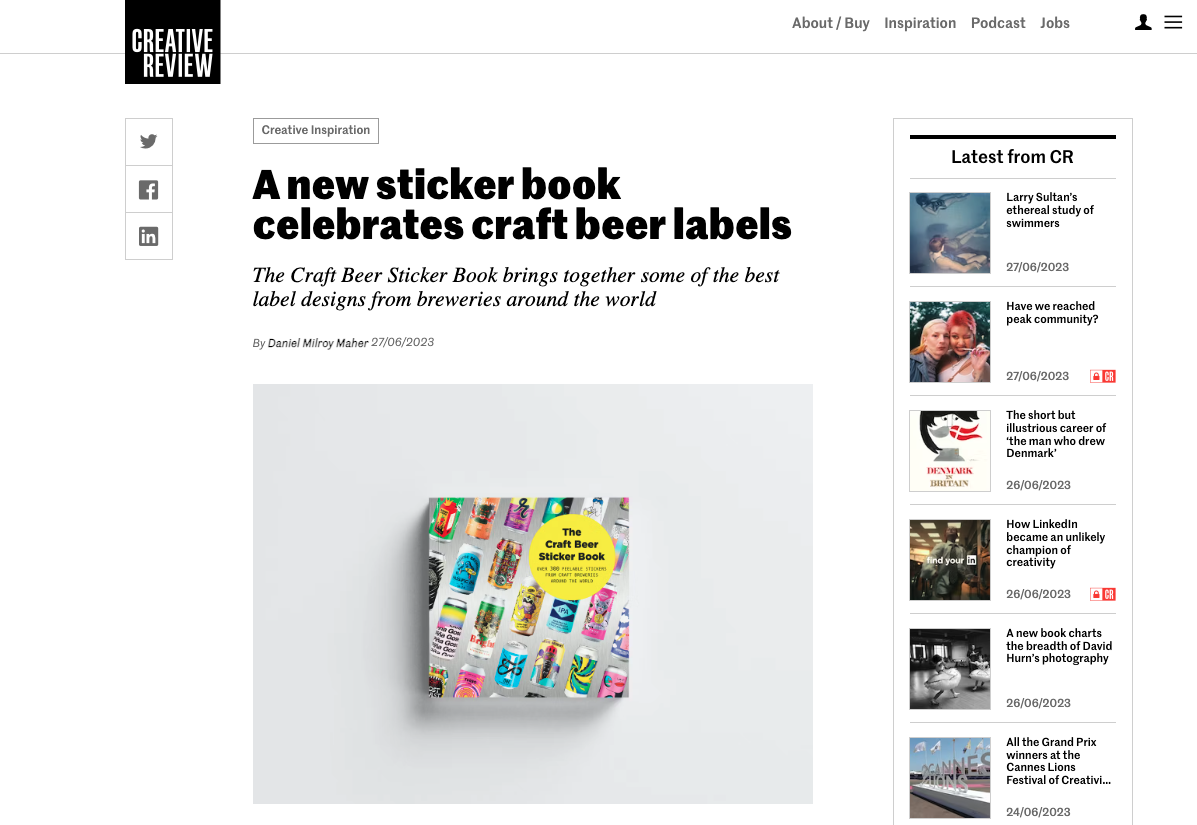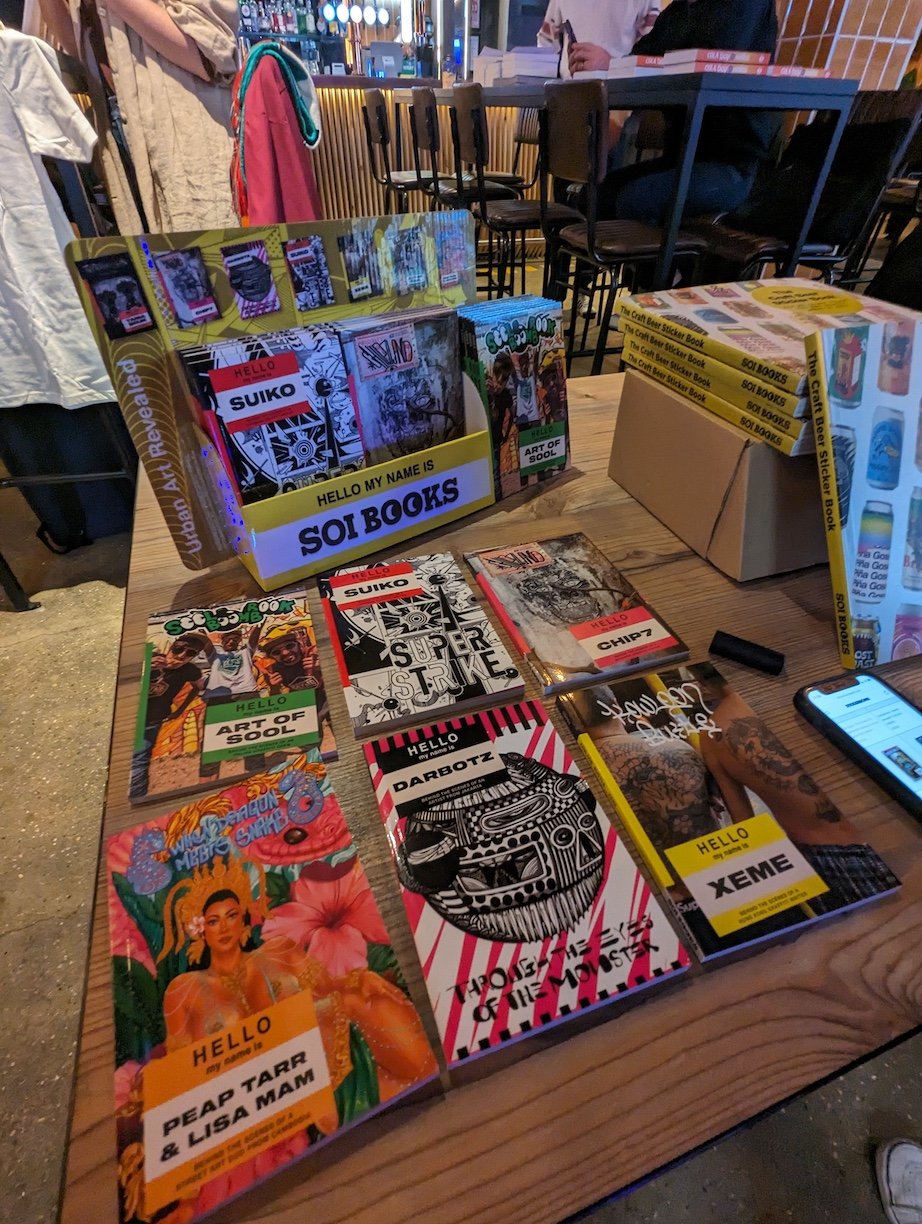From Studio Rarekind to Soi Books: Our Journey from 2008 to 2024
Hackney, 2008
We opened Studio Rarekwai, later known as Studio Rarekind (theSRK), in Hackney, London, in 2006.
By 2008, we were a well-established creative video production studio that also authored and published books thanks to a relationship with Laurence King Publishing. We began collaborating with some great record labels, musicians, and NGOs. That period also marked the start of our work with a few brands.
And for a time, it was good!
A sped-up video showing the painting of an interior wall in our first studio on Darnley Road, Hackney, from 2008.
As both business owners and artists, we always grappled with the operational side of running a business. Our serious wanderlust meant that our focus on scaling the SRK took a backseat. The 2008 financial crisis hit hard, but we rode it out thanks to our optimism, a supportive landlord, and a slate of small but solid projects to keep cash flow. In 2009, we experienced a wonderful bounce-back year where we landed some big projects—namely our book and film Graffiti Asia and a feature documentary Soka Afrika.
In 2010, as we expanded our work across Europe and Asia, we transitioned the company to a fully remote model. Our portfolio of clients grew, our skills improved, and we secured some fantastic partnerships. However, what we didn't realize was that we had started to lose sight of our original mission.
Well Deep, documentary trailer. We made the full film for BIg Dada (Ninja Tune) Records
Digital Nomads
As digital nomads, we opened and closed offices and studios across Cambodia, Jakarta, and Bangkok. In Bangkok, we even curated an art space called The Space Gallery for six months. It was a good time—we were landing a lot of regional Southeast Asian work from Singapore, making great connections across the region, and living in developing countries helped us keep costs low.
Looking back, the business had become something that existed to support a lifestyle; it was no longer a growing enterprise. That's not necessarily a bad thing, but if you're unaware of it, it's easy to drift.
In 2016, we decided to end the drift and establish a business in Singapore. With a strong client base, solid contacts, and a community of friends in the city-state, it felt like the right move.
Setting up in Singapore wasn’t easy, but Studio Rarekind grew to seven employees, with offices in London, Singapore, and a mini bureau in Bangkok. We relied on our network and saw steady growth, though it came with plenty of challenges. Despite enjoying life in the tropics, we were barely making payroll, constantly stressed, drinking daily, and taking on every job we could find. Some projects we loved; others we dreaded.
Reality kicked in—we had become a "content farm."
The filmmaker, the artist, the creative in me felt sick, while the business owner in me shrugged and carried on.
Mediocrity and Entrepreneurship
The most disappointing part was straying from our original vision. I’m a filmmaker, and my business partner, Ryo Sanada, is a creative director and producer. We were good at hustling up work, managing sales, handling accounts, and even juggling a bit of HR. But back in London, our goal was to build a studio that produced cutting-edge films and unique publications.
Instead, we found ourselves in Singapore’s corporate landscape, churning out content.
Boring, plain content. Content that clients were happy with, that sold well and got views—but for us, it felt like our work had lost its edge.
Decision Time
With growing dissatisfaction and new family responsibilities, we faced a tough decision: double down by seeking investment to expand or close up and admit it was time to move on. After months of deliberation and many pints at Owl's Brew Bar, we chose the latter and decided to close the business.
It’s hard to drive a business forward when your heart’s not in it. Navigating impending parenthood while feeling discontented only made it harder. Studio Rarekind officially closed in 2018, just a couple of months after my son was born. My family and I left Singapore, and I took some long-overdue paternity leave.
The Emotional Toll of Failure
I hadn’t anticipated the emotional impact of closing the business—it took nearly two years to fully process it.
After leaving Singapore, my family and I spent six months in Cambodia, where I shared an office with Stuart Cochlin Architects. We then spent a year and a half in Seattle, where I rekindled my passion for photography and filmmaking, where I directed and shot SODO EXPRESS. Eventually, I returned to Southeast Asia for some contract work.
COVID: A Time to Rebuild
Then COVID hit, bringing with it a period of reflection and uncertainty. Fortunately, I was under contract and able to ride out the lockdowns in the tropics with a pool to swim in.
Long conversations with Ryo and chats with old friends and colleagues followed. Together, we agreed it was time to rebuild—but not as a conventional business. Instead, we envisioned a return to an old-school creative studio that recaptured the energy we had in our twenties, where the work, the quality, and the creative process would come first, without compromise.
Launching Soi Books (2023)
In 2021, after a meaningful break from commercial production, Ryo and I decided it was time to return to publishing. Over a decade as authors had prepared us well, and the idea of returning to commercials was downright unappealing. We developed a few titles but recognized the need for a crucial missing piece. In the summer of 2022, we met with Steve Aston—an old colleague and friend from our days across ASEAN. He agreed to join us as our Managing Director, taking on finance and operations.
In January 2023, Soi Books was born. And we’ve definitely been keeping ourselves busy..
Soi Books is the next chapter in our journey, taking us from content creators to full-fledged publishers. It’s all about our love for crafting unique, quality publications that genuinely mean something to us—from sticker books to design titles for DJs and museum collections.
We’re excited to dive back in, bringing everything we’ve learned over the past 16 years and a renewed passion for doing things our way.
Got an idea for an art or design book? Need a hand bringing your publication to life?
Drop us a line - we’d love to help make it happen!


















